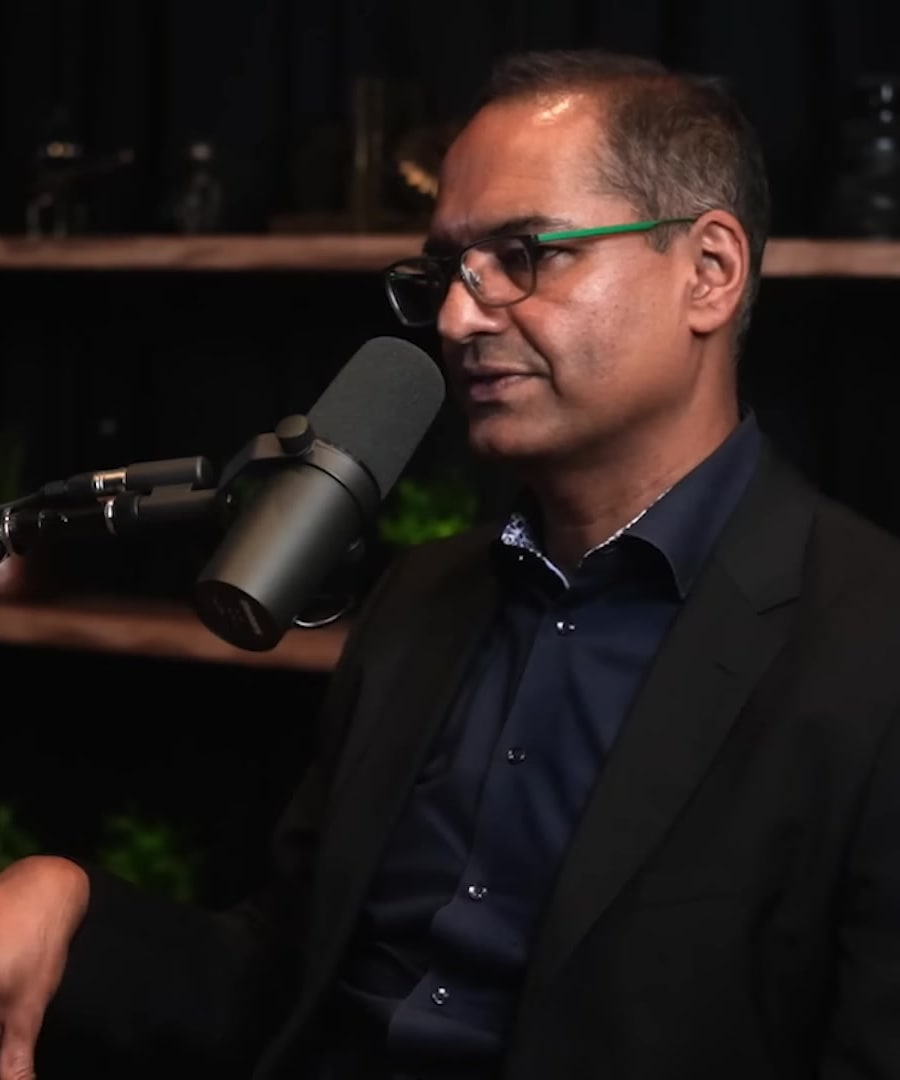Find podcast with Charan Ranganath
Charan Ranganath has appeared on the following podcasts:
-
The One You Feed:
- Hosted by Eric Zimmer, the podcast delves into personal growth, self-improvement, and spirituality, featuring diverse guests discussing a range of inspiring topics.
-
On Purpose with Jay Shetty:
- Hosted by Jay Shetty, this podcast focuses on self-improvement and personal growth with guests from various backgrounds, including celebrities and experts.
-
The Jordan B. Peterson Podcast:
- Hosted by Jordan Peterson, the podcast covers topics like psychology, philosophy, and cultural issues through deep conversations with influential thinkers.
-
The TWIML AI Podcast:
- Hosted by Sam Charrington, the podcast discusses machine learning and artificial intelligence, featuring top minds in the field.
-
Lenny's Podcast:
- Hosted by Lenny Rachitsky, the podcast explores technology, product development, and business growth through discussions with industry leaders.
-
Aubrey Marcus Podcast:
- Hosted by Aubrey Marcus, this podcast explores a wide range of topics including spirituality, psychedelics, and mental health, featuring deep conversations with diverse guests.
-
RELATED QUESTIONS-
What topics were discussed?
Charan Ranganath participated in discussions across various podcasts, covering a wide range of topics:
-
The One You Feed:
- Focused on personal growth, self-improvement, and spirituality. Topics include positive neuroplasticity, breaking bad habits, and radical compassion.
-
On Purpose with Jay Shetty:
- Explored self-improvement and personal growth. Topics covered include mental health, relationships, success, and purpose.
-
The Jordan B. Peterson Podcast:
- Delved into psychology, philosophy, and cultural issues. Topics discussed include brain freedom, evolutionary biology, and cancellation culture.
-
The TWIML AI Podcast:
- Focused on machine learning and artificial intelligence. The discussions cover AI advancements, deep learning, and data science.
-
Lenny's Podcast:
- Explored technology, product development, and business growth. Topics include AI, software development, and product strategy.
-
Aubrey Marcus Podcast:
- Covered spirituality, psychedelics, and mental health. Topics discussed include consciousness, self-improvement, and ancient wisdom.
-
RELATED QUESTIONS-
What were the key topics?
Sources:
Charan Ranganath has discussed various key topics across different podcasts, primarily focusing on memory and cognition. Some of the key topics include:
-
Memory Formation and Recall:
- The role of emotions and novelty in forming lasting memories and how memories compete with each other. Memorable events often involve significant biological changes, such as neuron activity and neuromodulators, aiding memory retention 1.
- How biases in memory recall and the importance of diverse perspectives can improve memory accuracy. Charan emphasizes being aware of these biases and surrounding oneself with diverse sources of perspectives 2.
-
Curiosity and Learning:
- The significance of curiosity in driving learning and engaging dopamine circuits. Curiosity-induced activities activate brain circuits responsible for striving and seeking information rather than directly experiencing pleasure 3.
-
Repressed and Traumatic Memories:
-
Memory and Mindfulness:
- The power of mindfulness and perspective in managing memories. Practicing mindfulness helps in better handling the mode of remembering and potentially reducing the negative impact of painful memories 6.
-
Language Analysis and Cognition:
- The potential of language analysis, using methodologies like Large Language Models (LLMs) and fMRI data, to provide insights into human and animal cognition. This includes analyses of emotions, sentiments, and the commonalities across species 7.
-
Shared Memory in Relationships:
- The benefits of shared memory support in relationships. Recalling events together can enhance memory performance and potentially delay cognitive decline, highlighting the importance of strong social connections in maintaining cognitive health 8.
These discussions underscore the complexity of memory and cognition, the impact of emotional and social factors, and the interplay between memory formation, recall, and how we perceive and interpret past experiences.
RELATED QUESTIONS-
Does Charan Ranganath touch on religious beliefs or his views on God?
Sources:
Charan Ranganath's discussions do not appear to directly touch on his personal religious beliefs or his views on God based on the available clips and transcripts. Here are some relevant points from his conversations:
-
Perspectives and Memory:
- He emphasizes the importance of multiple perspectives in understanding events and memories. He uses examples like differing memories of the Vietnam War (referred to by Vietnamese people as the American War) to illustrate how viewpoints shape narratives 1.
-
Mind and Memory:
-
Mindfulness and Memory:
- He talks about mindfulness and being present to better manage memory recall and reduce rumination without connecting these practices to religious beliefs 4.
In sum, while Charan Ranganath extensively explores human cognition and memory, there are no explicit references to his personal religious beliefs or views on God within the retrieved data.
RELATED QUESTIONS-



